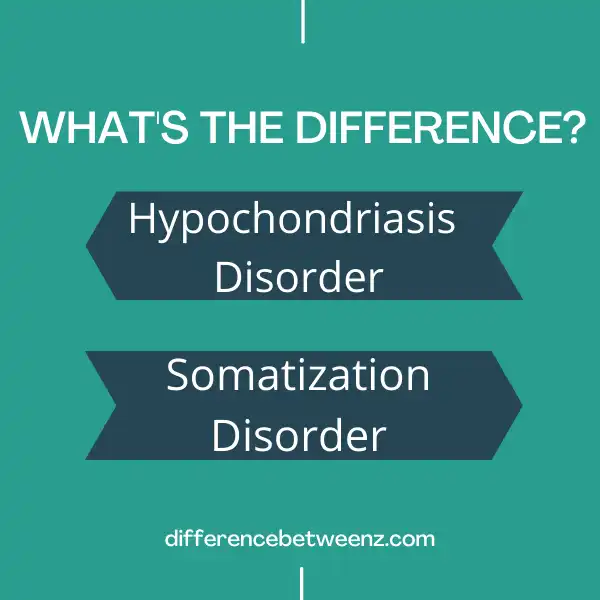Hypochondriasis and somatization disorder are two different conditions, but people often mistake them for each other. They have some similarities, but there are also some key distinctions between the two.
What is Hypochondriasis Disorder?
Hypochondriasis disorder, or hypochondria, is a mental health condition characterized by a persistent and excessive fear of illness. People with hypochondria often believe that they have a serious medical condition, even when there is no evidence to support this belief. As a result, they may experience a great deal of anxiety and distress. Hypochondria can be extremely disruptive to everyday life, as people with the condition may avoid social situations and miss work or school due to their fear of becoming ill. While there is no cure for hypochondria, treatment can help manage symptoms and improve quality of life. Cognitive-behavioral therapy, for example, can help people with hypochondria learn to challenge their negative thoughts and cope with anxiety. With treatment, people with hypochondria can learn to manage their fear and live fulfilling lives.
What is Somatization Disorder?
Somatization disorder is a mental health disorder that is characterized by physical symptoms that are not caused by any underlying medical condition. These symptoms can include pain, gastrointestinal problems, and sexual dysfunction. People with somatization disorder often experience a great deal of distress and may have difficulty functioning in their daily lives. While the exact cause of somatization disorder is unknown, it is believed to be related to psychological factors such as anxiety and stress. Treatment typically involves psychotherapy and medication. With proper treatment, most people with somatization disorder are able to greatly improve their quality of life.
Difference between Hypochondriasis and Somatization Disorder
Hypochondriasis and somatization disorder are both mental disorders that can cause patients to believe they are ill when they are not. Both conditions can be caused by stress, anxiety, or other mental health issues. However, there are some key differences between the two disorders. Hypochondriacs tend to focus on a specific organ or body part, and they may believe that they have a serious illness even when there is no medical evidence to support this belief. Somatization disorder is more general, and patients may experience a range of physical symptoms that are not linked to any specific disease. In addition, somatization disorder can also cause patients to experience psychological symptoms such as depression and anxiety. As a result, somatization disorder is often more debilitating than hypochondriasis.
Conclusion
Hypochondriasis is a disorder where people are excessively worried about their health. They may believe they have a serious illness, even though there is no evidence to support this belief. People with hypochondriasis often go to great lengths to avoid anything that could be harmful to their health.
Somatization Disorder is a condition in which people experience physical symptoms such as pain, gastrointestinal problems, and sexual dysfunction, but there is no medical explanation for these symptoms. These people often visit many different doctors in an effort to find out what is wrong with them. Although the two disorders seem similar, they are actually quite different.


